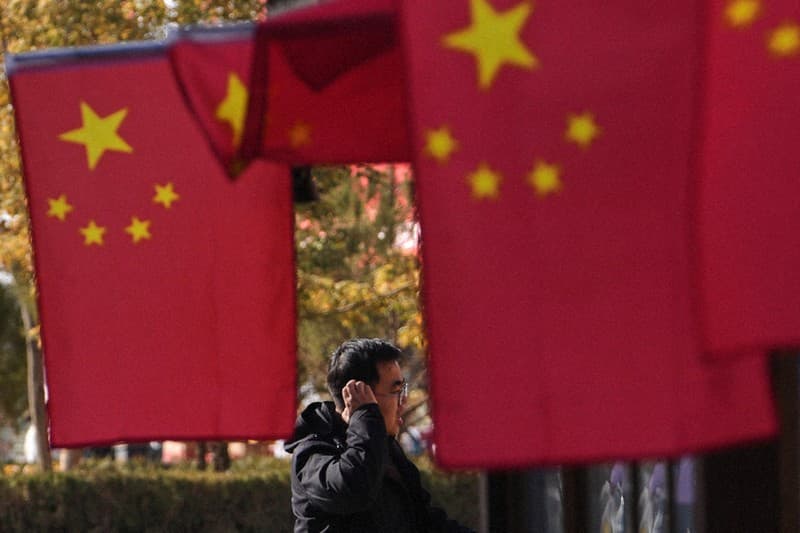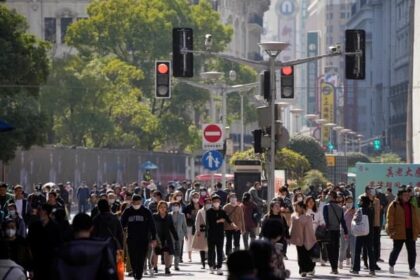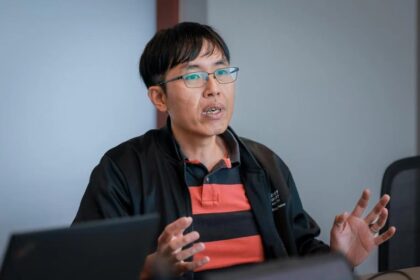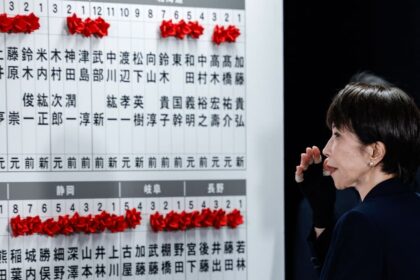Why the warning matters now
China’s Ministry of Education issued an overseas study alert on Sunday urging Chinese citizens to carefully reconsider plans to study in Japan. The statement said the public security situation in Japan is unstable and alleged a rise in crimes aimed at Chinese nationals. The advisory lands during a sharp dispute with Tokyo that grew after Prime Minister Sanae Takaichi linked a potential Taiwan emergency to Japan’s security laws, a move that Beijing condemned as interference in China’s internal affairs.
Beijing paired the student alert with broader guidance on travel. China’s Foreign Ministry and diplomatic missions called on citizens to avoid trips to Japan for now. Chinese airlines announced free refunds or itinerary changes for many tickets involving Japan. China also publicized new Coast Guard patrols near the disputed islands administered by Japan as Senkaku and known in China as Diaoyu. Education exchanges and tourism are often the first areas where diplomatic friction leads to immediate changes in daily life. The latest measures are a warning that the political argument over Taiwan is spilling into people to people contact.
What Beijing told students
China’s education authority framed the alert as a safety measure for students already in Japan and those preparing to go. The notice urged close monitoring of local security conditions, careful risk assessment, and greater attention to personal safety. It described the current study environment as unfavorable and said safety risks for Chinese citizens in Japan are increasing.
The advisory reflects earlier warnings from Chinese diplomats in Tokyo, who have in recent months urged vigilance after violent incidents and cases of fraud. In April, the embassy highlighted several murders of young Chinese women reported since December 2024 and cautioned against walking alone at night. The embassy also pointed to scams and theft that appeared to target Chinese nationals. It added a health note about a rise in norovirus cases, urging travelers to practice food and water safety.
The scale of Chinese study in Japan underlines why the alert resonates. According to the Japan Student Services Organization, more than 123,000 Chinese nationals were enrolled at Japanese institutions in the 2024 academic year, the largest group of foreign students and an increase of about 8,000 from the previous year. A sharp shift in sentiment or policy can influence admissions, language schools, and exchange programs across both countries.
Tokyo’s position and the Taiwan trigger
The immediate catalyst for this exchange was a recent statement by Prime Minister Sanae Takaichi in the Diet about how Japan would view a crisis in the Taiwan Strait. Her comments connected potential conflict to Japan’s legal framework adopted in 2015, which expanded the circumstances in which Japan can support an ally under its security laws.
Before the uproar, Takaichi told lawmakers that a Taiwan emergency involving the use of force could meet the legal threshold for a survival threatening situation for Japan. She said:
“A military emergency over Taiwan could be regarded as a situation that would threaten Japan’s survival.”
The remark drew a sharp response from China, which considers Taiwan part of its territory and rejects foreign involvement. China’s Foreign Ministry demanded a retraction and warned that continued provocation would bring consequences. Japan did not retract the statement. Officials in Tokyo stressed the need to maintain communication channels with Beijing even as they pushed back against criticism.
The reference point for the debate is Japan’s security legislation passed in 2015. The laws allow limited exercise of the right of collective self defense in highly restricted cases. The government must determine that Japan faces a survival threatening situation, that there is no other appropriate way to protect the lives and rights of the Japanese people, and that the use of force is limited to the minimum necessary level. While the laws do not mention Taiwan by name, the concept is central to how leaders describe potential scenarios.
Is Japan less safe for Chinese nationals
Japan is widely regarded as a safe country, with low rates of violent crime compared with many other nations. That reputation, however, does not eliminate risk. Major cities can still see theft, scams, and occasional violence, and foreign residents who are unfamiliar with local customs or language can be more vulnerable. Chinese diplomats say recent cases have disproportionately affected their citizens, especially young women, and they have urged extra caution at night and in unfamiliar neighborhoods.
Embassy messages this year have also flagged online and phone fraud, a trend that has grown in many countries. Scammers often pose as officials or service providers and pressure victims to transfer money. Officials advise people to verify identities before paying fees or fines and to report threats immediately to the police. On the health front, the embassy has urged travelers to avoid untreated water, thoroughly cook food, and be careful with raw dishes during norovirus outbreaks. These reminders are common in winter months, when gastrointestinal viruses often spread more easily.
The message from Beijing is intended to reduce avoidable risk and to raise awareness. For students already in Japan, the practical steps are familiar: stay with friends when traveling late, choose housing with secure access, keep copies of documents, and know how to contact both Japanese authorities and Chinese consular staff in an emergency.
Rising military and diplomatic friction
The warnings arrive at a time when Japanese military leaders describe the country’s security environment as the most complex since World War II. They cite simultaneous pressures from China, Russia, North Korea, and instability in the Middle East. In messages for the new year, senior officers pledged to reinforce deterrence and to deepen cooperation with allies. Plans include establishing a Joint Operations Command in 2025, deploying new capabilities, and improving coordination across land, sea, air, cyber, and space domains.
Japanese officials have pointed to repeated violations of airspace and territorial waters by Chinese and Russian units, as well as regular Chinese exercises near Taiwan. The Japan Self Defense Force has kept up a heavy pace of vigilance flights and maritime patrols. Allies, including the United States and partners in Europe, have increased their presence in the region with ship visits and exercises. China for its part announced Coast Guard patrols near the Senkaku and Diaoyu islands after the recent dispute, adding another signal that maritime tensions remain.
This backdrop helps explain why rhetoric has hardened. When leaders link a Taiwan scenario to Japan’s rights under its security laws, they send a deterrent message to adversaries and reassurance to allies. For Beijing, such statements cross a political red line. The result is a cycle in which diplomatic and informational tools, such as travel and study advisories, become part of the pressure campaign.
Impact on education and travel sectors
Short term effects will likely show up first in student mobility and tourism. Families often make enrollment decisions months in advance. An alert that stresses unstable public security can prompt some to delay or to choose a different destination. Japanese universities and language schools rely heavily on Chinese applicants. Any sustained drop in demand could squeeze programs that count on large cohorts each spring and autumn.
Airlines moved quickly to accommodate changes. Major Chinese carriers, including Air China, China Southern, China Eastern, Hainan, Sichuan, and Xiamen, announced free refunds or rebooking for eligible tickets that involve Japan through the end of the year. The policies cover routes that include Tokyo, Osaka, Nagoya, Fukuoka, Sapporo, Hiroshima, and Okinawa, with conditions that vary by airline and fare class. That flexibility helps travelers adjust plans while the diplomatic standoff continues.
Japan’s tourism sector, which has benefited from a strong inflow of visitors from China, could feel cancellations if the advisory persists. Retailers and hospitality businesses in major cities often target Chinese travelers with language services and promotions. Pullbacks after previous diplomatic disputes have hit spending in duty free stores and destinations popular with tour groups. Local governments and national agencies will watch bookings closely and hope that communication channels at the political level stay open.
How students and families can respond
For students weighing a move to Japan or studying there now, the goal is to reduce exposure to risk while keeping education plans on track. The following steps reflect common safety practices and advice from official notices.
- Track official alerts from China’s Ministry of Education, the Foreign Ministry, and the Chinese Embassy in Tokyo. Pay attention to emails from your Japanese university about campus security and local conditions.
- Before travel, confirm housing, airport transfers, and emergency contacts. Share your itinerary with family and friends.
- In cities, avoid isolated areas late at night. Travel with friends when possible and choose licensed taxis or reputable ride services.
- Protect against fraud. Do not send money in response to unsolicited calls or messages that claim to be from police, banks, or delivery companies. Verify identities in person or through official channels.
- Mind health basics. During norovirus season, drink safe water, eat thoroughly cooked food, and be cautious with raw dishes. Consider travel insurance that covers medical care.
- Keep copies of your passport, residence card, and student ID in a secure location separate from the originals. Store important numbers in your phone and on paper.
- Register with Chinese consular services through official apps or websites. In emergencies in Japan, call 110 for police and 119 for fire or ambulance.
- Have a contingency plan with your school. Ask about remote learning options and refund or deferral policies in case travel becomes difficult.
Key Points
- China’s Ministry of Education urged citizens to reconsider studying in Japan, citing unstable public security and rising crimes targeting Chinese nationals.
- Chinese diplomats advised against travel to Japan for now, and major airlines offered free refunds or changes on many tickets.
- The warning followed Prime Minister Sanae Takaichi’s remark that a Taiwan emergency could threaten Japan’s survival under security laws that allow limited collective self defense.
- China increased pressure with Coast Guard patrols near the disputed Senkaku and Diaoyu islands.
- Japan is widely seen as safe, yet Chinese embassy notices have flagged recent murders of young women, fraud, theft, and seasonal norovirus risks.
- Education and tourism could feel the immediate impact if sentiment shifts, given that more than 123,000 Chinese students were enrolled in Japan in 2024.
- Japanese military leaders say the country faces its most complex security environment since World War II, driven by actions by China, Russia, and North Korea.












